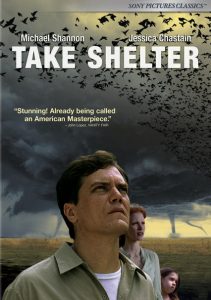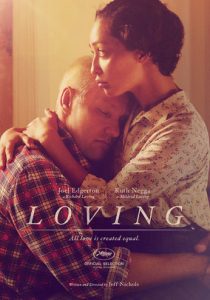The Bikeriders-2024
Director Jeff Nichols
Starring Austin Butler, Jodie Comer, Tom Hardy
Scott’s Review #1,431
Reviewed July 1, 2024
Grade: A-
The Bikeriders (2024) immediately informs the audience of the time and place the film will be told. A dry and dusty midwestern USA between 1965-1973 is the window explored and the defiance of the characters drawn.
This period is the Vietnam War, Civil Rights, assassinations, Woodstock, and many other historical moments. Dangerous, the culture and people were changing and very rebellious.
Director Jeff Nichols, who also wrote the screenplay based on ‘The Bikeriders’ by Danny Lyon, wonderfully presents a time capsule of a group of bikers who forged their subculture away from the uncertainty of the rest of the world.
After a chance encounter at a local biker bar, strong-willed Kathy (Jodie Comer) is drawn to handsome and mysterious Benny (Austin Butler), the newest member of the Midwestern motorcycle club, the Vandals, led by the enigmatic Johnny (Tom Hardy).
Much like the country around it, the club changes with time, transforming from an essential gathering place for local outsiders into an underworld of violence. This forces Benny to choose between Kathy and his loyalty to the club.
The most vital parts of The Bikeriders are the beginning and end, with portions in the middle section, making it drag and lowering a potential ‘A’ rating to an ‘A-.’
But the other sections are so rich with characterization and events that they usurp the dull parts.
Nichols, who has also directed Take Shelter (2011), Mud (2012), and Loving (2016), likes to focus on the decade of the 1960s in America with conflicted characters. He likes to work with Michael Shannon, who has a small yet pivotal role as a man who ponders life.
We meet Benny in a bar, where he sips a drink. Two local thugs hastily tell him to remove his biker jacket. After a bloody fight in the parking lot, we realize how much the biker club means to him and what it symbolizes.
It’s a club where the vermin, weirdos, undesirables, and those cast aside by society find a place and are cared for by one another. That is until the years pass and things change by meaner and less loyal bikers.
The symbolism resonates with all because time never stands still, and good things always come to an end.
The Bikeriders is told from Kathy’s perspective through interviews with her friend Danny (Mike Faist). He is the real-life author of the book on which the film is based.
Comer is outstanding in the lead female role. She is strong and resilient, attracted to the dangerous lifestyle and the bikers, but only has eyes for Benny and will not be taken advantage of.
She chronicles specific events like fights, death, and rape in painful yet thoughtful detail, inviting the audience into her dark world.
Butler and Hardy are also terrific. Arguably co-leads, Butler’s Benny is childless and more accessible than Hardy’s Johnny, a family man. Johnny sees Benny as the next leader of the Vipers, but Benny wants none of that.
Comparisons to the club and life outside the club torture both men. During a long homoerotic scene, Johnny and Benny are dangerously close to kissing as Johnny discloses the reasons why Benny should lead the club.
The scene is smoldering as the unspoken connection can be felt in raw form. Nichols doesn’t dare to make the film into anything LGBTQ+ related, but the nuances and subtleties exist.
Besides the acting, the gritty environment oozes with richness. The soiled biker bars, sticky floors laden with blood, beer, and vomit, emit from the silver screen.
You can almost smell the environment.
The bad teeth, foul language, and tacky Midwestern accents all portray the loneliness of these characters and their clinging to the club for dear life.
Nichols and the author Lyon depict a fresh look into the world of motorcyclists and the culture they lived and died in for a brief time. The Bikeriders (2024) presents violence mixed with brotherhood and loyalty, which is fascinating to watch.


